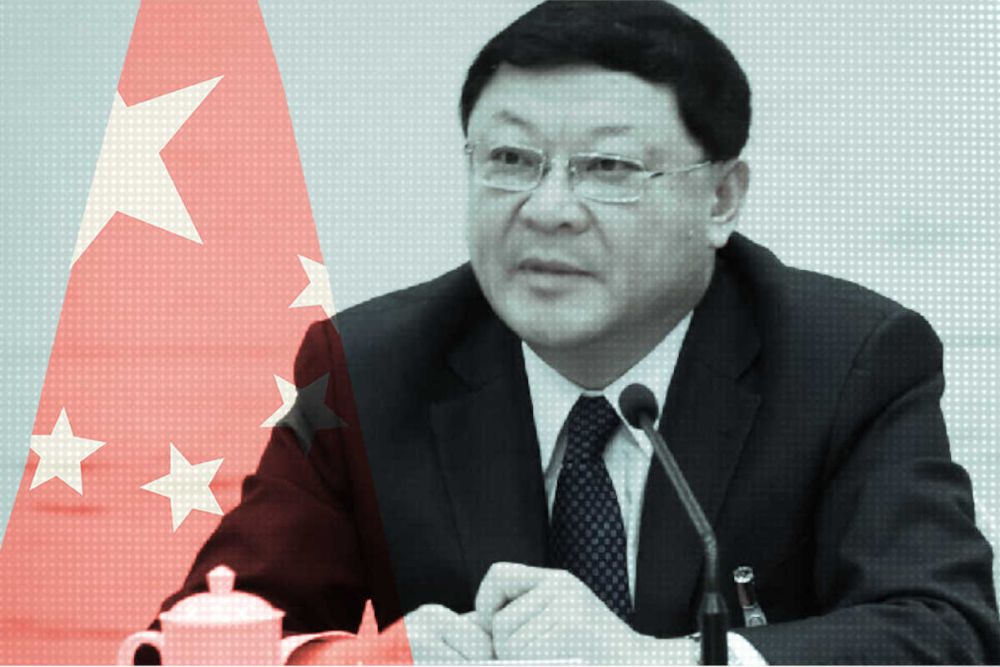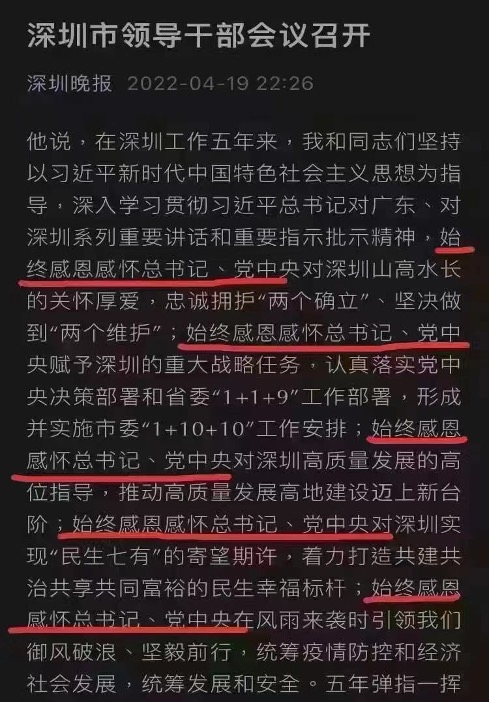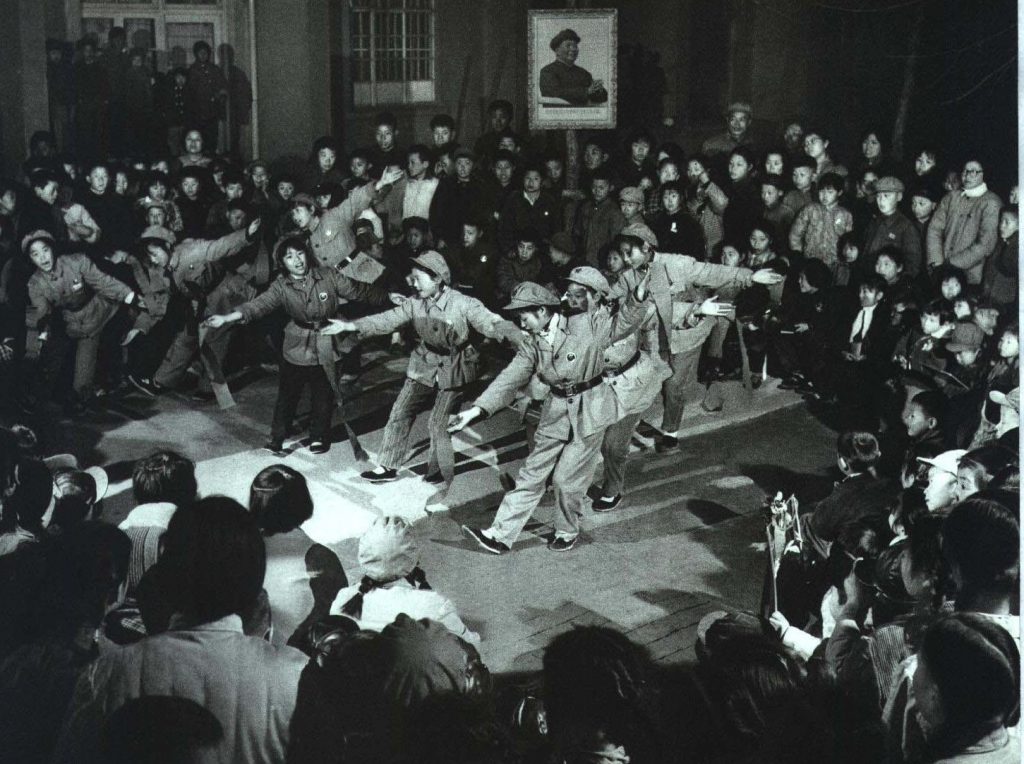
Guangdong governor Wang Weizhong (王伟中) signaled obedience to Xi Jinping by repeatedly thanking the CCP general secretary during a meeting last week.
Last week at CMP, we looked at the emergence in Guangxi of the phrase “pilot of the great revival” (伟大复兴领航人) to address Chinese leader Xi Jinping – the latest example of expressions of loyalty, or biaotai (表态), that we can expect to intensify in the run-up to the 20th National Congress of the CCP next fall.
Eager not to be left behind in the race to bend the knee before Xi, top leaders in Guangdong province sent strong signals of obedience during a meeting to announce adjustments from the Central Committee on “main responsible comrades” (主要负责同志) in the city of Shenzhen. In a readout of the meeting, Guangdong governor Wang Weizhong (王伟中) was quoted as using the phrase “Ever grateful to the general secretary” (始终感恩感怀总书记) no less than 10 times in his address.

In fact, the phrase started nearly every remark that Wang made regarding the expectations of the CCP leadership and the actions of Guangdong and the city of Shenzhen:
[We are] ever grateful to the General Secretary and the CCP Central Committee for assigning major strategic tasks to Shenzhen, [and we have] conscientiously implemented the decisions and deployments of the CCP Central Committee and the provincial party committee’s ‘1+1+9’ work deployment, forming and implementing the municipal party committee’s ‘1+10+10’ work arrangement; [we are] ever grateful to the General Secretary and the CCP Central Committee for its high-level guidance on Shenzhen’s high-quality development, promoting the building of high-quality development to a new level; [we are] ever grateful to the General Secretary and the CCP Central Committee for its expectation for Shenzhen in achieving the ‘seven people’s livelihoods’ and striving to build a happiness benchmark for the achievement of common prosperity; [we are] ever grateful to the General Secretary and the CCP Central Committee for leading us through the wind and waves as the storm comes, resolutely pushing forward, integrating epidemic prevention and control with economic development, and development with security.
In an era when power is increasingly consolidated at the very top of the CCP, these expressions of obedience resemble the “loyalty dance,” or zhongziwu (忠字舞), of the Maoist period. This was a collective dance prevalent during the Cultural Revolution, when Mao claimed control over all aspects of life. When performing the zhongziwu, dancers would grasp copies of Mao’s “little red book” as they leapt and shouted to music.





















